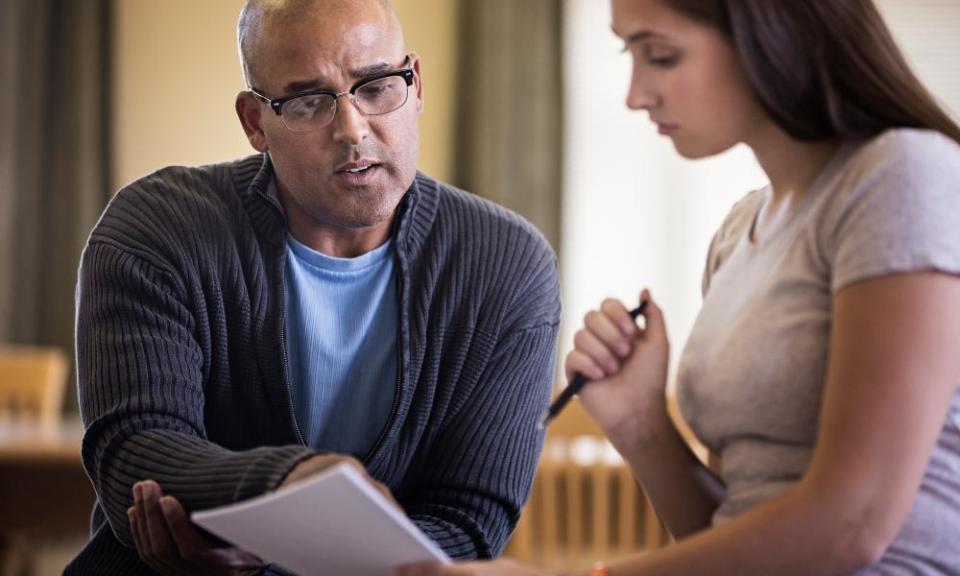The need to breathe new life into adult education

As a former mature student who escaped a life of dead-end jobs thanks to Workers’ Educational Association (WEA) classes and Ruskin College, I welcome Laura McInerney’s case for revisiting adult education after 100 years and supporting mature students (A century of adult education tossed aside, 15 January). The concept of the “mature student” was largely invented in the immediate aftermath of the first world war via a groundbreaking report on adult education. For a few years, thousands of former soldiers got the chance to go to university, many seeking to change the world by throwing their energies into the League of Nations. They also invented the National Union of Students to restore international peace. Then an austerity-driven government pulled the plug on the funding and it all stopped until after the next war.
Thankfully, a new commission on adult education is about to refocus our minds on rebuilding adult education as part of the UK-wide #AdultEducation100 campaign. This will remind us that humans are multi-dimensional beings. Getting them going in systematic learning means responding to their many different interests – employability and vocational skills, cooking and gardening, reading and film, parenting and healthy lifestyles, curiosity and nosiness, volunteering and community improvement.
Only a broad-based learning provision can meet the need, which is a lesson of experience gained over the past century. Anyone who would like to take part in the campaign is very welcome to contact rosey@co-op.ac.uk
Nigel Todd
Chair, Board of trustees, Co-operative College CIO, Manchester
• Laura McInerney is quite right to bemoan the state of adult education and fear for people who wish to learn new skills. Just like McInerney, my life was transformed by evening classes at the local college – an enriching experience that is routinely denied to most adults today thanks to funding cuts. A recent report from the Institute for Fiscal Studies revealed that funding for adult education has been cut by 45% since 2010. The number of part-time students in higher education, who are typically older and often juggling a job, is down 56% over the same period.
A recent government report found that older people, those from the poorest backgrounds, the unemployed and those with fewest qualifications were now less likely to engage in education and training than their younger, wealthier, employed and better-educated contemporaries.
These people value the power of education and want to access it but are denied the opportunity to improve their lives. Our society is crying out for a system that can provide high-quality opportunities for all throughout life. The question is: when will government deliver?
Matt Waddup
Head of policy, University and College Union
• Well said Laura McInerney, but no it’s not too late to rescue adult education, though, as with so many policy areas, it will require some radical thinking and significantly more investment.
I was lucky to work for the WEA for 30 years up to 2018. During that period, and indeed over its entire life (100-plus years), the WEA has struggled financially but has survived and through its endeavours countless adults’ lives have been transformed. Many denied a decent first chance have found a way back and discovered their innate abilities and potential through the second chance.
But whatever the successes, however powerful the individual and collective stories, the fact remains that far too many never get the chance because governments down the ages have a poor, and worsening, attitude and commitment to adult education as well as further education.
The Centenary Commission that Laura refers to is a great initiative. I’m confident it will come up with a series of proposals for a comprehensive adult education for the 21st century. It will undoubtedly highlight the importance of liberal adult education and the significance of enabling critical, creative and questioning citizens.
RH Tawney – intellectual, reformer and adult educator – talked about the role adult education could play in creating a more “tolerable society”. My goodness, don’t we need that right now!
Let’s hope the commission is listened to by government and, more importantly, acted upon. Rescue is possible but adult education has taken an awful battering in recent times. So time may be running out.
Jol Miskin
Sheffield
• Discussing the 1919 Report on Adult Education, Laura McInerney suggests that “Back then, politicians worried that extending the vote meant the public needed to be smarter, or they would be taken in by populist demagogues.” That worked well, didn’t it?
Mike Smith
Southampton
• Join the debate – email guardian.letters@theguardian.com
• Read more Guardian letters – click here to visit gu.com/letters
• Do you have a photo you’d like to share with Guardian readers? Click here to upload it and we’ll publish the best submissions in the letters spread of our print edition

 Yahoo News
Yahoo News 